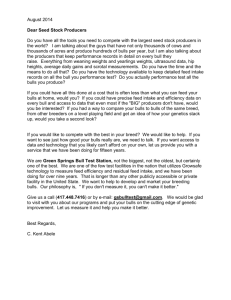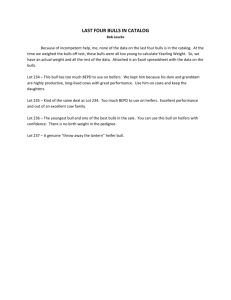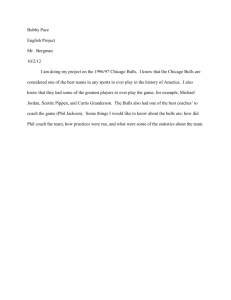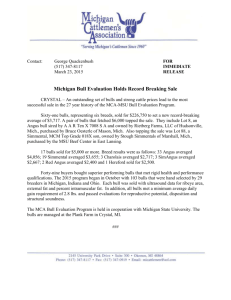Alix Wittmayer: Agricultural Economics & Economics
advertisement
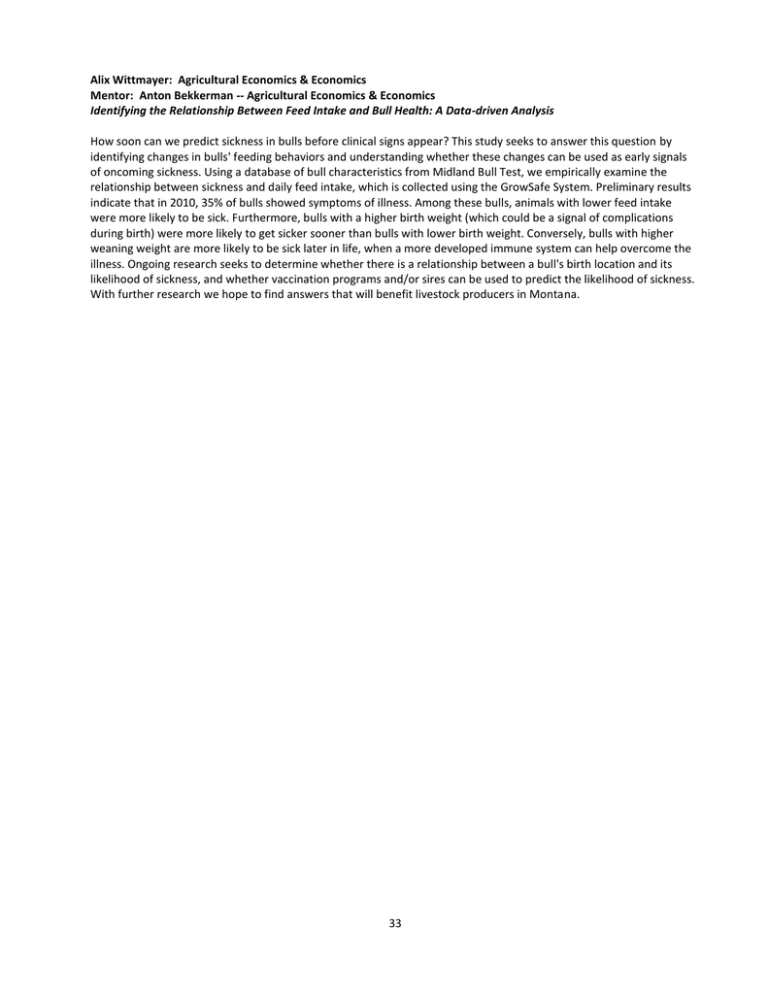
Alix Wittmayer: Agricultural Economics & Economics Mentor: Anton Bekkerman -- Agricultural Economics & Economics Identifying the Relationship Between Feed Intake and Bull Health: A Data-driven Analysis How soon can we predict sickness in bulls before clinical signs appear? This study seeks to answer this question by identifying changes in bulls' feeding behaviors and understanding whether these changes can be used as early signals of oncoming sickness. Using a database of bull characteristics from Midland Bull Test, we empirically examine the relationship between sickness and daily feed intake, which is collected using the GrowSafe System. Preliminary results indicate that in 2010, 35% of bulls showed symptoms of illness. Among these bulls, animals with lower feed intake were more likely to be sick. Furthermore, bulls with a higher birth weight (which could be a signal of complications during birth) were more likely to get sicker sooner than bulls with lower birth weight. Conversely, bulls with higher weaning weight are more likely to be sick later in life, when a more developed immune system can help overcome the illness. Ongoing research seeks to determine whether there is a relationship between a bull's birth location and its likelihood of sickness, and whether vaccination programs and/or sires can be used to predict the likelihood of sickness. With further research we hope to find answers that will benefit livestock producers in Montana. 33
